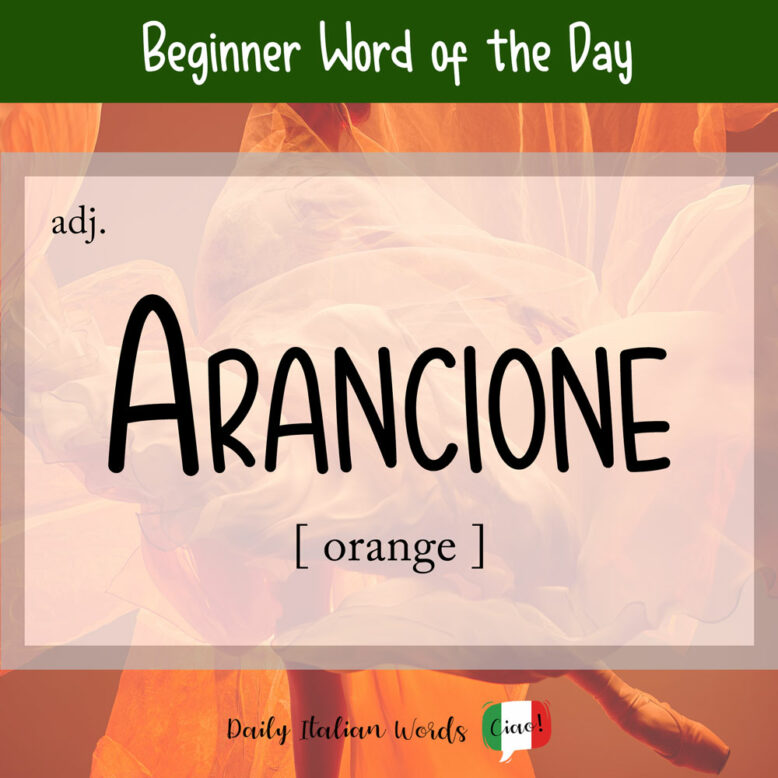Arancione (plural: arancioni) is the word for the colour orange in Italian.

It derives from the word arancia which is what Italians call the fruit of the same name.
Questa arancia è più verde che arancione. Non sarà ancora matura.
This orange is more green than orange. It probably isn’t ripe.
The word arancio translates as orange tree in Italian, but it is also an accepted synonym for the colour arancione. The two are more or less interchangeable.
La signora indossava un abito arancio scuro.
The lady was wearing a dark orange outfit.

A third but less common synonym for the colour is aranciato.
Ho comprato una maglietta di un bel colore aranciato acceso.
I bought a nice bright orange-coloured shirt.
In European languages, including Italian and English, there was no word that defined the colour orange until the introduction of the fruit sometime between the 11th and 12th centuries. It was simply considered a lighter shade of red (rosso). This is why expressions such as pesce rosso (goldfish), gatto rosso (ginger cat) and capelli rossi (red hair) have remained in use despite their orange appearance.


There are numerous words in Italian that share the same origin as arancione including:
- mandarancio = clementine orange
- aranceto = orange grove
- aranciata = orangeade
- aranciera = orangery
Trivia: the arancino (or arancina as it is also called) is a popular Sicilian fried stuffed rice ball coated with bread crumbs. You’ll often find them filled with ragù sauce, ham, mozzarella cheese and peas. The name is inspired by its orange-like appearance.
Heather Broster is a graduate with honours in linguistics from the University of Western Ontario. She is an aspiring polyglot, proficient in English and Italian, as well as Japanese, Welsh, and French to varying degrees of fluency. Originally from Toronto, Heather has resided in various countries, notably Italy for a period of six years. Her primary focus lies in the fields of language acquisition, education, and bilingual instruction.


